China denies detaining Indian soldiers after reports say 10 freed
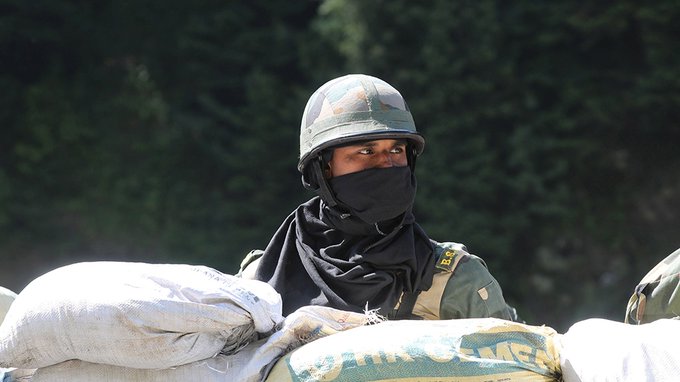
China has said it never detained Indian soldiers after Indian media reports said 10 of them were released after they were captured in a high-altitude border clash in the Himalayas which also left at least 20 Indian soldiers dead.
When asked about Indian media reports on Friday, Chinese foreign ministry spokesman Zhao Lijian said "China hasn't seized any Indian personnel" after the two sides fought with nail-studded batons and hurled rocks at each other in the disputed Galwan Valley - the deadliest such clash in 45 years.
Zhao said "the right and wrong is very clear and the responsibility lies entirely with the Indian side," according to the Associated Press.
He added the two sides are in communication over diplomatic and military channels. "We hope India can work with China to maintain the long-term development of bilateral relations," he said at a daily briefing.
Earlier on Friday, India's PTI news agency and other media reported that China released 10 Indian army soldiers, including at least two senior officers, late on Thursday.
Their release followed several rounds of major-general-level talks between the two armies in a bid to ease tensions, the reports said.
'Returned unharmed'
The Indian Express newspaper, quoting officials it did not name, said all 10 soldiers were released by China around 5pm (11:30 GMT) on Thursday.
The released soldiers were medically examined and provided a preliminary debriefing, reports said. "They were returned unharmed," said The Hindu.
The Indian Express said it was the first time after the 1962 India-China war that Indian soldiers were taken into custody by the Chinese side.
While China's maps in the past claimed most of the Galwan river but not its western end, it now increasingly appears Beijing has extended its claims west of the LAC to the Galwan-Shyok confluence 1/2
111 people are talking about this
The Indian army on Thursday denied its soldiers were in Chinese custody. "No Indian troops missing in action," a statement released by the army said.
Later in the day, the Indian army said 76 of its soldiers were wounded in Monday night's clash in Galwan Valley. It added that 56 of those wounded had been cleared to return to work "within a week".
China was yet to officially disclose if it suffered any casualties in the deadliest clash between the two nuclear-armed Asian neighbours in decades.
India and China have not exchanged gunfire at the border since 1967, despite occasional flare-ups. Soldiers are under instructions to keep their rifles slung at their backs.
Since the clash, there is no sign of a breakthrough between the two Asian giants.
"The situation remains as it was, there is no disengagement, but there is also no further build up of forces," said an Indian government source aware of the ground situation.
Decades-old border conflict
India said its soldiers were killed in a premeditated attack by Chinese troops at a time when top commanders had agreed to defuse tensions on the Line of Actual Control (LAC), or the disputed and poorly defined border between the two nations.
China rejected the allegations and blamed front-line Indian soldiers for provoking the conflict which took place at the freezing height of 14,000 feet (4,300 metres) in the western Himalayas.
The 4,056-km (2,520-mile) border between India and China runs through glaciers, snow deserts and rivers in the west to thickly forested mountains in the east.
The Galwan Valley is an arid, inhospitable area, where some soldiers are deployed on steep ridges.
It is considered important because it leads to the Aksai Chin, a disputed plateau claimed by India but controlled by China.
The border tension with China has become Indian Prime Minister Narendra Modi's most serious foreign policy challenge since he took power in 2014.
Hardline nationalist groups tied to Modi's Bharatiya Janata Party (BJP) have stepped up calls for a boycott of Chinese goods and the cancellation of contracts with Chinese firms.
Amid calls for a boycott, thousands attended funerals on Thursday for many of the 20 Indian soldiers killed in the clash.
Chinese flags and posters of China's President Xi Jinping were burned in at least two cities.
US condoles with India
The United States offered condolences to India on Friday over the deaths of 20 Indian soldiers killed in the vicious combat with Chinese troops.
"We extend our deepest condolences to the people of India for the lives lost as a result of the recent confrontation with China," US Secretary of State Mike Pompeo said in a message posted on Twitter.
"We will remember the soldiers' families, loved ones, and communities as they grieve."
As a non-aligned nation, India has always sought to balance the influence of super-powers, while maintaining an independent course in foreign policy matters.
But in the past two decades, New Delhi has built closer political and defence ties with Washington, and the US has become one of India's top arms suppliers.
In the wake of the rising tensions with Beijing, there are rising calls from top former Indian diplomats for an even tighter relationship with the US and its allies such as Japan to help face the economic and military might of China.
"This is an opportunity for India to align its interests much more strongly and unequivocally with the US as a principal strategic partner and infuse more energy into relations with Japan, Australia, and ASEAN," former foreign secretary Nirupama Rao wrote in The Hindu.
Follow us on twitter (ajuede.com) or on Instagram (ajuedeman) for details of the global situation presently.


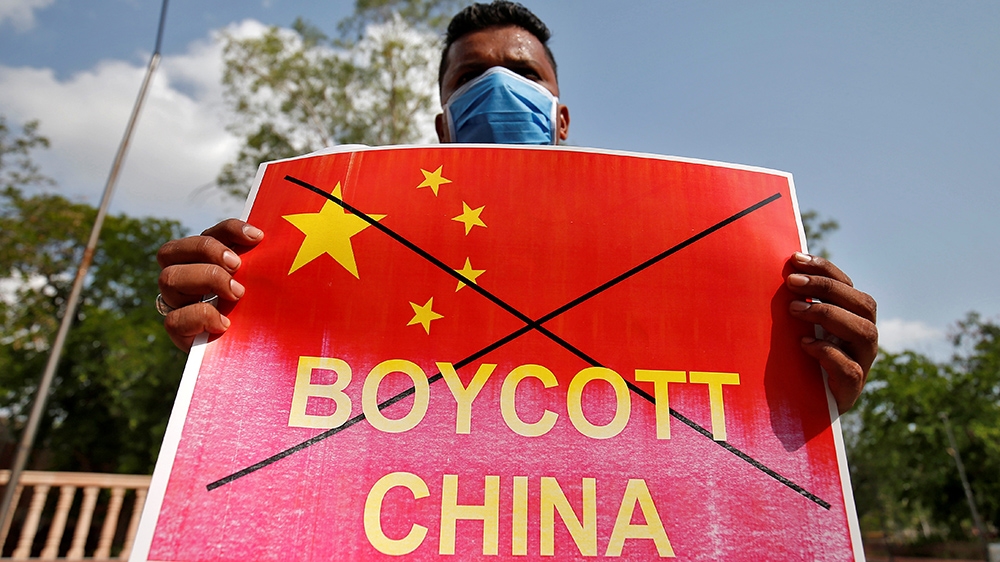

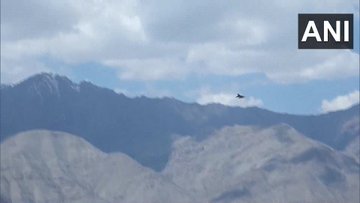
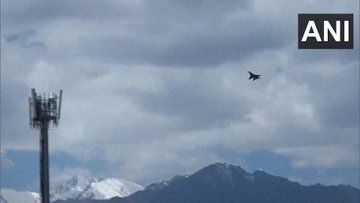
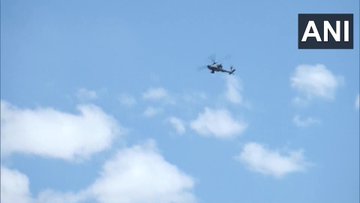
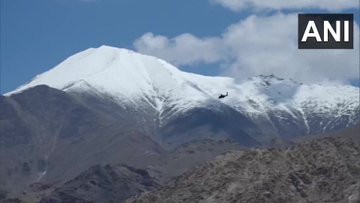
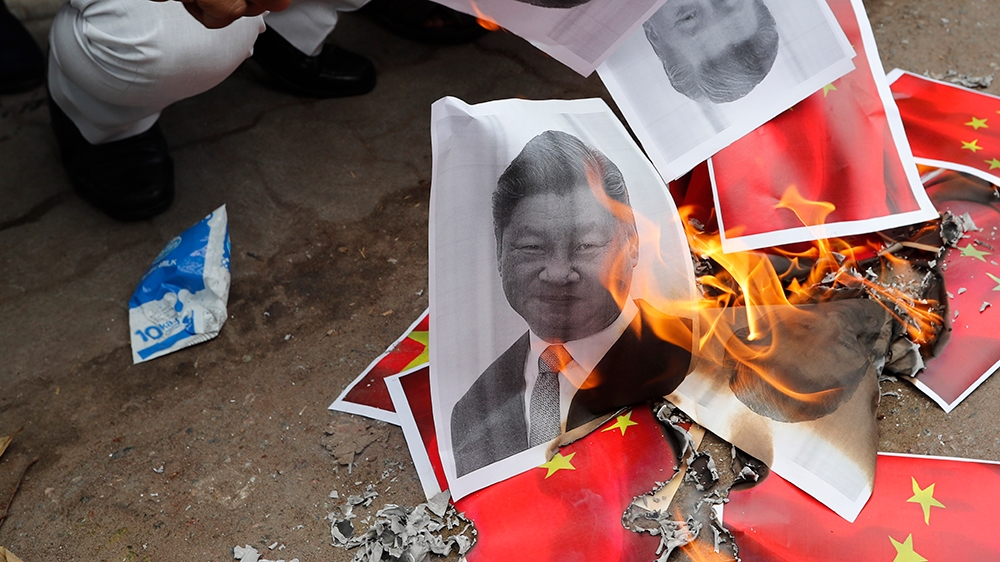





.jpeg)
Comments
Post a Comment